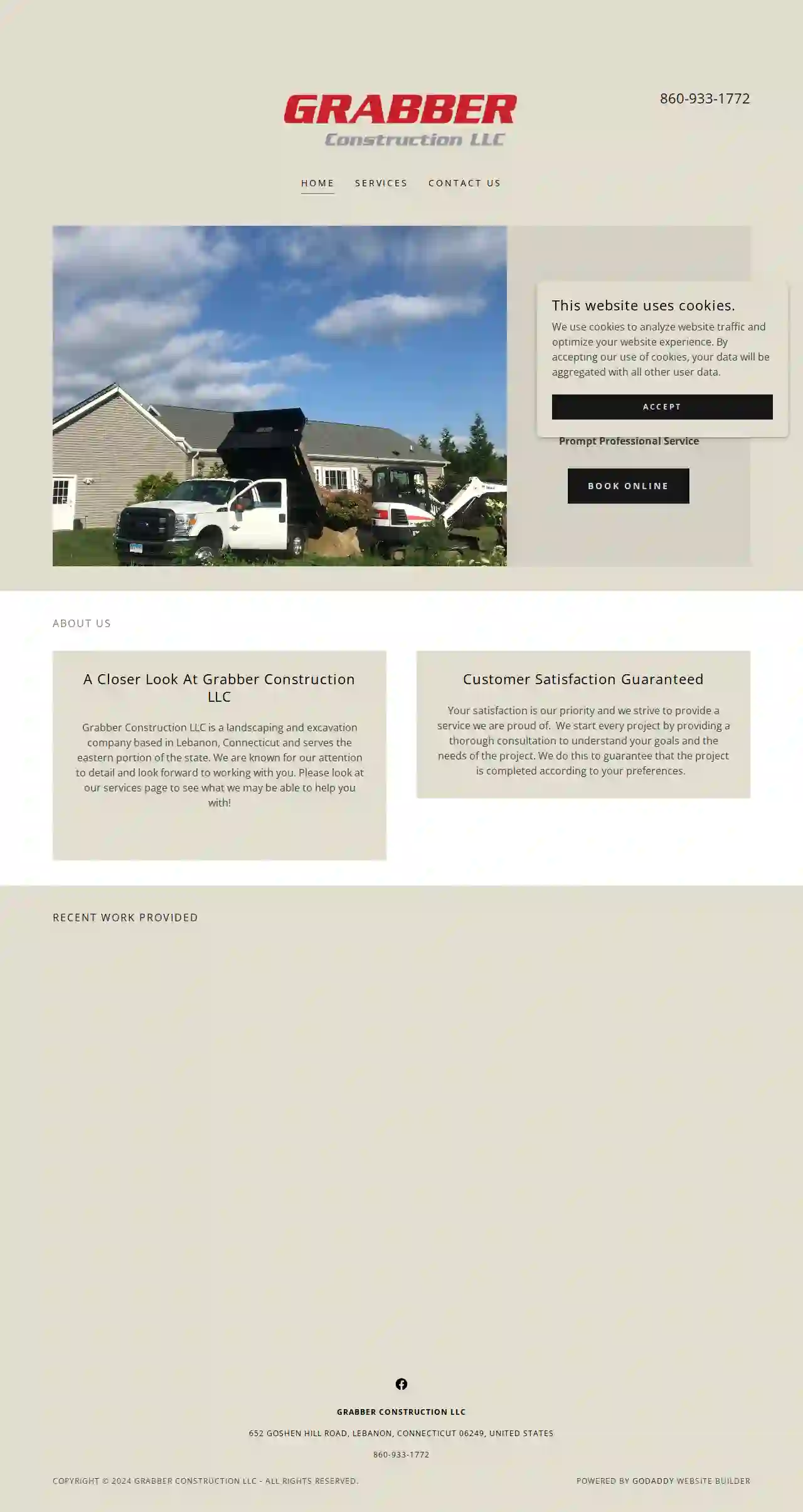Excavation Contractors Laindon
Find the best Excavating Contractors in Laindon
Receive 3 FREE Excavating Contractors quotes for your project today! Compare profiles, reviews, accreditations, portfolio, etc... and choose the best offer.

NPS Services LTD
1Unit 207, Grangewood House, Unit 207 Grangewood House 43 Oakwood Hill Industrial Est. Loughton Essex, Loughton, IG10 3TZ, GBConstruction NPS SERVICES LTD. offers a wide variety of high quality construction services for residential and commercial clients. Read more Reliable We have the most talented people in house that are excited to start with your new project. It is the drive that makes them creative. Read more Ready to help We have the most talented people ready to help you out with any related issues! Call or email us now ! Read more
- Services
- Why Us?
- Testimonials
- Gallery
Get Quote- Se
Sewells Reservoir Construction Limited
52 reviewsColchester, GB- Services
- Why Us?
Get Quote - Di
Diggins & Co Estate Agents Rayleigh
4.629 reviewsRayleigh, GB- Services
- Why Us?
Get Quote - CP
CP Dynes
4.510 reviewsChelmsford, GB- Services
- Why Us?
Get Quote - Cl
Cl Construction , builders & landscapers Colchester
54 reviewsColchester, GB- Services
- Why Us?
Get Quote - Cr
Creedmoor Construction Ltd
1Chelmsford, GB- Services
- Why Us?
Get Quote 
JPB Landscapes | Landscaping Services | Gardener | Paving Contractor | Garden Designer
519 reviewsHazelmere Chappel Road, Great Tey, Essex, CO6 1JL, GBJPB Landscapes: Your Essex Landscaping Experts JPB Landscapes is a leading landscaping and grounds maintenance company based near Colchester, Essex. We've been serving Essex, Suffolk, and surrounding areas for over 10 years, consistently delivering a gold standard service to both residential and commercial clients. We understand that your outdoor space is an extension of your home, and we're dedicated to creating beautiful, functional, and sustainable landscapes that you'll love for years to come. Our team of experienced professionals is passionate about landscaping and committed to providing exceptional customer service. We work closely with our clients to understand their vision and create a personalized plan that meets their needs and budget. Whether you're looking for a complete garden redesign, regular grounds maintenance, or anything in between, we have the expertise and resources to get the job done right. We're proud to be a trusted and reliable landscaping company in Essex. Contact us today to discuss your project and get a free, no-obligation quote.
- Services
- Why Us?
- Testimonials
- Gallery
Get Quote
Robinwill Roofing & Building Services Ltd
4.8114 reviewsLoughton, GBRobinwill Roofing & Building Services Ltd Robinwill Roofing & Building Services Ltd is an established building company providing services throughout Essex as well as East and North London. Get in Touch At Robinwill Roofing & Building Services Ltd, we support commercial and domestic customers throughout Loughton, Romford and the wider Essex and North and East London regions.
- Services
- Why Us?
- Gallery
Get Quote- He
Henry Excavating LLC
54 reviewsColchester, GB- Services
- Why Us?
Get Quote 
Grabber Construction LLC
4.924 reviews652 Goshen Hill Road, Lebanon, 06249, GBAbout Us Grabber Construction LLC is a landscaping and excavation company based in Lebanon, Connecticut and serves the eastern portion of the state. We are known for our attention to detail and look forward to working with you. Please look at our services page to see what we may be able to help you with! Customer Satisfaction Guaranteed Your satisfaction is our priority and we strive to provide a service we are proud of. We start every project by providing a thorough consultation to understand your goals and the needs of the project. We do this to guarantee that the project is completed according to your preferences.
- Services
- Why Us?
- Gallery
Get Quote
Over 11,537+ Excavation Pros in our network
Our excavation contractors operate in Laindon and surroundings!
ExcavationHQ has curated and vetted Top Excavation Contractors arround Laindon. Find a trustworthy business today.
Frequently Asked Questions About Excavation Contractors
- Project Size and Scope: Larger, more complex excavations naturally take longer.
- Soil Conditions: Rocky or challenging soil types can slow down progress.
- Site Accessibility: Limited access might require more time for maneuvering equipment and hauling materials.
- Weather: Inclement weather can cause delays.
- Permitting and Inspections: Waiting for permits or inspections can extend the timeline.
- Clearly Define the Scope: Outline the project's goals, including the excavation area, depth, grade, and intended use.
- Obtain Necessary Permits: Research and acquire any required permits from your local authorities.
- Mark Utility Lines: Contact your utility companies to locate and mark underground utilities to prevent damage.
- Communicate with Neighbors: Inform your neighbors about the project's timeline and potential noise or disruptions.
- Prepare the Site: Clear any obstacles, such as vegetation, furniture, or structures, from the excavation area.
- Discuss Safety Protocols: Review safety procedures with the contractor to ensure a safe work environment.
How long does an excavation project take?
What is the difference between cut and fill excavation?
Cut: Involves excavating soil from an area where the existing grade is higher than the desired grade.
Fill: Refers to using the excavated soil ('cut' material) to raise the grade in an area where the existing grade is lower than desired.
This method minimizes the need to import or export soil, reducing costs and environmental impact. It's commonly used for site preparation, road construction, and landscaping.
What should I do before excavation starts?
What is the difference between topsoil and subsoil?
Topsoil: The uppermost layer, typically rich in organic matter, nutrients, and microorganisms. It's essential for plant growth and is often darker in color.
Subsoil: The layer beneath the topsoil, containing less organic matter and generally denser. It provides support for roots but is less fertile than topsoil.
During excavation, topsoil is often removed and preserved separately for later use in landscaping, while subsoil is typically used for backfilling or other less demanding applications.
How long does an excavation project take?
- Project Size and Scope: Larger, more complex excavations naturally take longer.
- Soil Conditions: Rocky or challenging soil types can slow down progress.
- Site Accessibility: Limited access might require more time for maneuvering equipment and hauling materials.
- Weather: Inclement weather can cause delays.
- Permitting and Inspections: Waiting for permits or inspections can extend the timeline.
What is the difference between cut and fill excavation?
Cut: Involves excavating soil from an area where the existing grade is higher than the desired grade.
Fill: Refers to using the excavated soil ('cut' material) to raise the grade in an area where the existing grade is lower than desired.
This method minimizes the need to import or export soil, reducing costs and environmental impact. It's commonly used for site preparation, road construction, and landscaping.
What should I do before excavation starts?
- Clearly Define the Scope: Outline the project's goals, including the excavation area, depth, grade, and intended use.
- Obtain Necessary Permits: Research and acquire any required permits from your local authorities.
- Mark Utility Lines: Contact your utility companies to locate and mark underground utilities to prevent damage.
- Communicate with Neighbors: Inform your neighbors about the project's timeline and potential noise or disruptions.
- Prepare the Site: Clear any obstacles, such as vegetation, furniture, or structures, from the excavation area.
- Discuss Safety Protocols: Review safety procedures with the contractor to ensure a safe work environment.
What is the difference between topsoil and subsoil?
Topsoil: The uppermost layer, typically rich in organic matter, nutrients, and microorganisms. It's essential for plant growth and is often darker in color.
Subsoil: The layer beneath the topsoil, containing less organic matter and generally denser. It provides support for roots but is less fertile than topsoil.
During excavation, topsoil is often removed and preserved separately for later use in landscaping, while subsoil is typically used for backfilling or other less demanding applications.